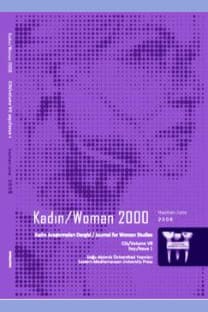Women’s Economic Status in the Ottoman Turkish Novel and the Pioneering Portrayal of Women’s Work in Fatma Aliye’s Novel, Refet and Udî
In this article, Ottoman women’s economic status, work experiences in the public sector, and their assets were discussed and examined Fatma Aliye’s (1862-1936) novels Refet (1896) and Udî (1898). These two novels are the first Ottoman-Turkish novels that problematize these matters. Refet relates the adventures of a young woman who graduates from one of the Female Teachers Training Colleges (Darülmuallimat), the first of which was opened in 1870, and who goes on to become a teacher. As such, it constitutes a valuable portrayal of how the teaching colleges were established and what they meant for the Ottoman women. These essential and permanent historical developments laid the foundation for legal rights to be gained after the establishment of the Republic, and Refet is the first Turkish novel to deal with this subject matter. Additionally, Refet (1896), appears as the first Turkish novelistic portrayal of teaching as a profession ‘suitable’ for women. Between Refet and Udî, there is intertextuality. Bedia, the protagonist of Udî, is inspired by Refet and requests Fatma Aliye to write about her life; hence, the author develops Udî as an early work of metafiction. Bedia makes a livelihood in Udî by teaching oud lessons. It's no accident that both women in these novels work as teachers. Teaching is regarded as one of the most female-friendly professions.
___
- ISSN: 1302-9916
- Yayın Aralığı: Yılda 2 Sayı
- Başlangıç: 2000
- Yayıncı: Doğu Akdeniz Üniversitesi Kadın Araştırmaları ve Eğitimi Merkezi
Sayıdaki Diğer Makaleler
Heteroseksüel Gençlerin Flört Şiddeti Üzerine Söylemleri
Türkiye’de İstihdam Edilen ve Edilmeyen Kadınların Temsiliyet Kısa Yolu Üzerine Bir Araştırma
Aysun YERLİKAYA, Deniz ÖZYAKIŞIR
Siberfeminizm Çerçevesinde Yeni Medyada Kadın Gazeteciler Üzerine Bir Araştırma
Ölümcül Babalar: Yalçın Tosun Öykülerinde Babalık Performansları
